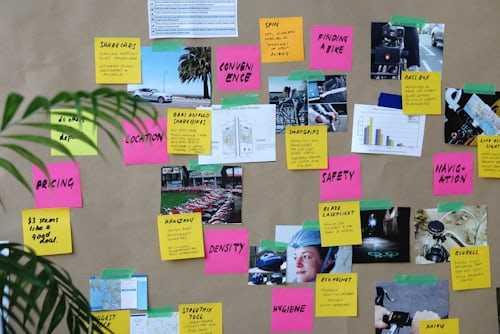Explore the World's Best Ideas
Join today and uncover 100+ curated journeys from 50+ topics. Unlock access to our mobile app with extensive features.
Art of Doing Research
A major problem while doing research is that we tend to forget what we've read or where did you read it.
- Some people use Zettlekasten which is a note-taking system.
- Another system is Caplan's approach, where you highlight the sections you may need to revisit later that will contain your notes and quotes as well as your summary of the work.
The goal is to create a map of everything, so you know where to find it again.
310
3.02K reads
1. Beginning research
Experts always use the right words & you should too. They have chosen words carefully to point out minor distinctions in ideas.
Wikipedia is a good starting point to find the ordinary language that points to expert concepts.
Type your idea in Wikipedia as you see it, then note the words used by experts. Then use these keywords to identify key works.
260
715 reads
2. Literature review
Once you've found the right keywords & some main papers, try to find reviews.
- Literature reviews qualitatively review all the papers on a topic.
- Meta-analyses try to collect effects from multiple papers on the topic to give a quantitative answer.
- Textbooks are used to present the field the way experts want a beginner to learn about it.
It can be helpful to type a keyword with the words "review" or "meta-analysis" in Google Scholar.
266
608 reads
3. Must-know tools for research
These are some of the essential things you should know:
- Sci-Hub is helpful to get access to papers. Alternatively, emailing authors can give you access to papers, but it tends to slow reading down.
- Google Books can help you find specifics in a particular book.
- Don't be hesitant to take courses first. It will provide a background on the topic.
Experts are very willing to talk to you.
274
537 reads
4. Limiting Yourself
Once you gained some understanding in a field, follow citation trails.
There will often be dozens of other papers cited and can result in an extensive reading list. Thus it is helpful to limit yourself to the few most promising ones.
Citations should have 2 major factors:
- Frequency
- Relevance.
Always remember that works cited more often are more centralized to a topic.
259
492 reads
Closing note -> Research is always open-ended
There is always something more to read which can potentially give you more insights on your topic.
You will never reach a point that will tell you you're done.
Since, research is open-ended, it can be hard to keep up.
Thus, it is better to decide before starting that how much time you want to commit to research.
257
586 reads
IDEAS CURATED BY
Curated™ for You's ideas are part of this journey:
Learn more about problemsolving with this collection
Strategies for building self-confidence
Techniques for embracing your strengths and accomplishments
Tips for seeking support and feedback
Related collections
Similar ideas
6 ideas
How I Do Research | Scott H Young
scotthyoung.com
10 ideas
10 Ways You Can Use ChatGPT to Learn Better - Scott H Young
scotthyoung.com
8 ideas
How To Read Scientific Papers
towardsdatascience.com
Read & Learn
20x Faster
without
deepstash
with
deepstash
with
deepstash
Personalized microlearning
—
100+ Learning Journeys
—
Access to 200,000+ ideas
—
Access to the mobile app
—
Unlimited idea saving
—
—
Unlimited history
—
—
Unlimited listening to ideas
—
—
Downloading & offline access
—
—
Supercharge your mind with one idea per day
Enter your email and spend 1 minute every day to learn something new.
I agree to receive email updates






